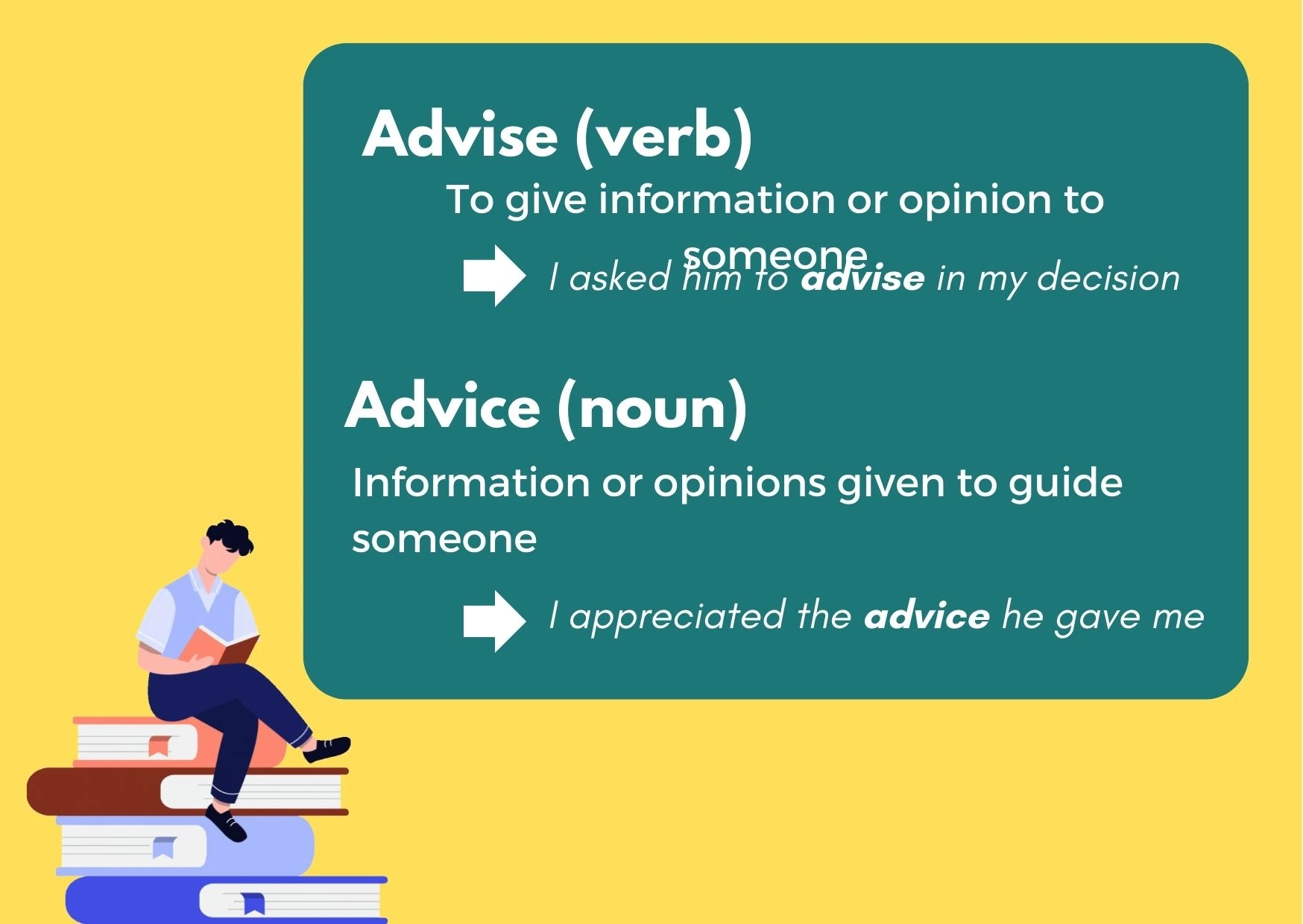In this article, we take a close look at advice vs. advise. These similar words can confuse readers and writers due to their proximity in spelling and pronunciation. Let’s define both and learn how you can use them in your writing!
Here is the short answer:
- “advise” is a verb that means “to give information or opinion to someone.”
- “advice” is a noun that means “information or opinions given to guide someone.”

Advise vs. Advice: Definition and Pronounciation
To reiterate, “advise” is used as a verb to describe the act of giving information or opinions, whereas “advice” is a noun to describe the information or opinion that is being given.
When pronounced, “advice” should rhyme with words like “ice,” and “advise” should rhyme with words like “prize.”
Synonymous Words
To enrich your writing, here are some synonyms of the word “advise:”
- Counsel, guide, advocate, recommend, support, urge,
In contrast, some synonyms of “advice” are:
- Counsel, information, pointer, recommendation, hint, opinion
Again, the synonyms of “advice” show how it is more of a “tangible” thing in comparison to the action of “advising.”
Advise – Advisee (Turning Verb Into A Noun)
The practice of turning nouns into verbs – called verbing – is quite common, and has given us many wonderful verbs:
For example:
He eyed an opportunity.
She tabled the proposal.
They authored a book together.
He accessed the building.
Users can friend and unfriend people on Facebook.
He messaged his wife on his phone.
Some of these verbs even start off as trade names and over time we drop the initial capital.
They googled how to build a tree house.
She xeroxed the sheet music.
The family skyped regularly.
This can work the other way as well, as we turn verbs into nouns. One way of doing this is by adding an -ee. When added to transitive verbs it forms words meaning a person or thing that is the object of that verb. Such is the case with advise:
advise + -ee → advisee (a person being advised). Some other examples include:
examine + -ee → examinee
interview + -ee → interviewee
train + -ee → trainee
employ + -ee → employee
Using “Advise” And “Advice” In Sentences
Here are some examples of both words being used in practice by reputable media sources:
Advice:
To get more content and advice like this direct to your inbox, sign up for our weekly Careers update. – The Guardian
Two were given a gel containing PRO 2000 (in different concentrations for each group), along with advice about how to use it, a regular supply of condoms and counselling on safe sexual practice and sexual health. – The Economist
My advice? If you’re going to apply for a lot of scholarships, be selective. And, as always, keep yourself organized! – The New York Times
Advise:
“When he resigns he has got to be able to advise the Queen whom to appoint in his place”. – The Guardian
That is about the size of force that will stay on to “train, advise and assist” the Afghan National Security Forces for another year at least. – The Economist
“We would once again advise QPR supporters to ignore idle speculation and reiterate that news is only official once it appears via our communication channels”. – BBC






